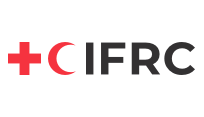T.8 Competition
Competitions aim to initiate group or individual action towards a common goal by providing incentives to win a WASH-related challenge. Competitions are commonly held in school settings, but can also be carried out at a community level e.g. in hygiene, health or WASH clubs.

Competitions utilise the creativity, motivation and collaboration of and between participants to encourage individual or collective behaviours and actions. They make positive use of the competitive element of peer pressure (e.g. between schools) and the prizes/incentives offered. Through their participation in a shared process, teams or individuals own the results and are more likely to implement them and adapt their behaviours. Potential themes include handwashing, the use and design of toilets, practical hygiene actions or preventing water wastage. Incentives do not have to be financial rewards. They can be non-cash prizes such as certificates or recognition (e.g. participation and honouring at public events like an award ceremony). In many cases, simply participating is beneficial (regardless of winning a prize) through gains in knowledge, the enjoyment of group activities or from a positive group dynamic and shared achievements. Publicly advertised Competitions can spread key messages to a wider range of stakeholders. Competition judges can learn a significant amount during the process by analysing specific evaluation criteria. The implementation process includes conceptualisation and material development, identification of context-specific prizes, communication with target groups, selection of judges, development of evaluation criteria and the planning of the launch and award ceremony. Competition has to be considered sensitively to avoid creating tension between different groups. Depending on the scale, implementation can take several days/weeks to months; it also depends on the availability of the target group. Seasonal aspects may also affect active participation (e.g. exam periods, school holidays or harvesting time).
Applicability
Simple Competitions may be feasible during the stabilisation phase. Bigger contests requiring government involvement and the use of existing institutional and communication structures may only be possible in recovery or development. Competitions can be conducted in schools, communities or camps through e.g. Health Clubs F.1. They are often conducted with children, who can be more receptive to playful interactions and may also involve their families in the process.
Do
Ensure sufficient resources to prepare the Competition and support participants
Use public events (launch, awards) or involve celebrities to motivate participants and gain public attention
Provide easy-to-read and visual guidance materials
Don't
Do not let the Competition focus only on e.g. dance, poetry or paintings, but ensure a WASH-related focus and outcomes
Do not favour certain groups through better access to materials or a lack of transparency in the evaluation
Do not only honour winners but also recognise the efforts of all other participants
Practical Example
Toilets Making the Grade (TMG, F.12) is a school sanitation and hygiene Competition developed by the German Toilet Organization that triggers teamwork between school management, administration, parents, learners and maintenance staff to jointly develop context-specific solutions that schools can implement based on a guided self-assessment. TMG aims for school-led WASH improvements, capacity strengthening for local government and extended public and policy advocacy. It was piloted in Germany and is currently being implemented in Uganda, Pakistan and Jordan.
Key Decision Critria
Response Phase
HP Component
Target Group
Application Level
References Competition case studies from various countries
GTO (2019): Toilets Making the Grade in Uganda
Abel, M. (2017): Clean Hands, Good Toilet, Happy Family! Hygiene Promotion Guidelines & Tools, Western Pacific Sanitation Marketing and Innovation Project
Agarwal, P. (2018): Now, Toilets of Govt Schools to Compete in Beauty Contest, The Times of India
World Vision MEERO (2017): GIZ Water Conservation 2017 – Implemented by World Vision International





